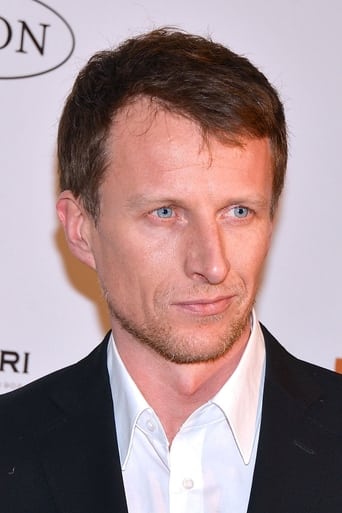Stometer
Save your money for something good and enjoyable
Intcatinfo
A Masterpiece!
Billy Ollie
Through painfully honest and emotional moments, the movie becomes irresistibly relatable
Shaolin_Apu
Lindman's film shows a story of a Finnish platoon leader Harry Järv, who during the Fenno-Russian War of 1941-44 led several successful raids against Russian strongpoints. Instead of any artistic ambitions, Lindman has meant his movie to be a true-story documentary about one historical person. While the film is a documentary drama, it lacks the horror and excitement one could expect from a war film. This approach has its reasons, because the film starts from the period of war during which only small-scale action was carried out between Finns and Russians. The action in the Finnish front during period of 1942-43 mostly consisted of Finnish patrols making havoc at the Russian lines, Russian snipers annoying Finnish watchmen and such.The Finnish platoon leader Harry Järv appears in the film as one of the most valiant soldiers there could be. He is not only good soldier. He is also cultivated. He reads classical philosophy and is eager to share his knowledge with his men. As a platoon leader he is unlike those USMC centurions, because he leads by his example. He never says "go!" but "come!". He speaks with his officers and men both Swedish and Finnish.I call this film propaganda only because it is so clean, although faithful depiction of actual events. Lindman has had an intention to teach the Swedes about war and explain why Soviet Union did not end up as a new neighbor for Sweden. It was rather geography and not politics at all that dragged Finland into the war! It should be admitted, that there was much worse in war, more blood and screaming, and all of the Finnish officers were not like Järv. There was however, plenty enough like him.As a whole, this is a unique film. Not great, but good and serves well all those who want to know about history. Framom främstä linjen has many little details that didn't surface up during watching it for the first time. I only began to like the movie only after watching it for the fourth time. For weapon freaks this movie offers a real rarity: the German StuG IIIg appearing at one scene. The DVD should have had a commentary and/or trivia track, because only Finns are enough familiar with their history and nature of their army.
xaggurat
DVD was released lately and just saw this one. Åke Lindman, the director has made a life long career as a film maker in Finland. He started in 1944, when the war was still on. He acted furiously in 1955 version of The Unknown Soldier (Tuntematon Sotilas).In this light it is somewhat strange, that the movie is such a dull war movie, badly directed and worse acting. As a war movie lover and as a historical buff I was very, very disappointed. The soldiers are very nice, clean, almost cute and they don't like swearing. They fight calmly, intelligently, honorably and heroically. Russians have no role against them but do die. I bet the time has gild the memoirs of either Järv or Lindman.About the wartime politics in Scandinavia. I bet the Finns would have liked if their beloved neighbors, the Swedes, would have let the British troops, which the British Govt was sending to aid Finland _against_ the Soviets, through Swedish soil during the Winter War - so the Finns would have had a chance to ally with the British, not the Germans. But that must be because Sweden gave only pass-trough permits to the Germans during the WWII. Small country, which is forced to fight a war, has only so much options. Not every country can just maintain peace and sell iron and Bofors guns to every fighting side and grow rich, while others are being bombed.I give this movie 2 points, one for being a war movie and Heiskanen acted decently.edited addition: Recently watched another bad war movie, Windtalkers. Actually these two movies are very much alike in many ways.And there's no point to weap about heroism, bad movie is a bad movie, especially if it's message has something to do with heroism.
Tasku
I liked this film for it's document-like story telling, and the fact that two veterans: Järv himself and another man from the same unit were involved in making it, as advisor's. This shows in true story told exactly right and in the way death is described and fake blood is not spared on the wounded.Järv's own photographs - taken by himself with the camera he carried with him in the war - are shown as he takes them in the film, and some black and white documentary clips are added to remind the viewer, this war really did happen. It's a nice touch, and a brave move, which could've flopped the movie. But it works.What I didn't like, was that Rambo-style Super Soldier Heroism shown on some battle screens. Also Russian head on attacks are quite common in the film: "Don't use the trees or dive for cover! Just run at them! CHAAAARGE!" Then again. Soviet's were known to use such tactics (especially early in the war). Järv's groups heroic raids on enemy positions are also a fact of history.I will comment Triathlonwest's earlier comments, to correct a few facts. First of all Soviet Union didn't attack Finland in The Winter War because "Russia needed land around Stalingrad to defend the city against possible German attacks" - as Triathlonwest stated. There's plenty of land around Stalingrad. They demanded a buffer zone for LENINGRAD. Soviet Union also demanded Finland's nickel mines at Petsamo, and several military bases inside Finnish borders, and close to the capital Helsinki, which would've basically given the Soviets free pass to enter the city, if war would've been later declared. And to this comment: "The reason the Fins lost territory to the Russians were their stubbornness and refusal to compromise". Behind the scenes, and before Winter War (or the Russo-German war), the Soviets had a pact with Germany (The Molotov-Ribbentrop Pact) to share Europe between them. Germany would get Western and Central Poland, and Western Europe, while Soviet Union had "claims" on Eastern Poland, Finland, Estonia, Lithuania and it's other western neighbors. So the war would've most likely started even if Finns would've accepted Soviet demands. Out of all countries included in this pact only Finland remained independent during and after the war. All thanks to Finnish stubbornness.
stensson
This film is about the real life Finnish war hero Harry Järv, who is still alive in Stockholm and started a career as a literature scientist after the war. The film starts in his home (?), where Järv, wearing lots and lots of medals, together with a friend who hasn't really that amount of medals, tell the beginning of the story for a young woman.When we move back to Russia in 1943 and the drama begins. Of course you can make a war movie like this, but it can be done much better. It is rather bad acting on many hands, although Ilkka Heiskanen passes as the lieutenant colonel. Although the battle scenes appear realistic, there is a kind of heroism here, which you thought died even before John Wayne did. Of course Finland's struggle was heroic, but the fact is that Finland 1941-1944 fought beside the Germans. They were brothers in arms. That might rise some questions, but hardly in this movie.One did expect more. No medals for the director here.



